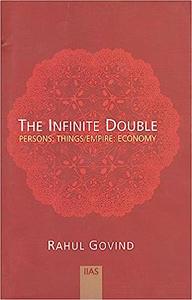The Infinite Double
- Книги
- 28-06-2023, 23:49
- 126
- 0
- voska89

Free Download Rahul Govind, "The Infinite Double"
English | ISBN: 9382396209 | 2015 | 576 pages | PDF | 2 MB
The Infinite double adopts a bi-focalled stance, at once conceptual and historical. In conceptual terms, it begins with the idea and act of judgment as the point of intersections between the epistemological and the political. The book is guided by the following paradox: when we judge someone to be deserving of death, in the paradigmatic cases of justice and war where action is indiscernible from judgment, we do so by affirming and denying the common ground that is shared with our subject. Only the latter, the human in its reasonableness, can be so judged, and only in his becoming inhuman, can he judged so. From here, three moments - the juridico-ploitical, socio-historical and scientific-economic-are sketched as epistemic functions having their own correlative images of the human. The latter's emergence and submergence is traced in an exposition of the changing relations between person and thing, self and sentiment, labor and capital, commerce and conquest. The initial paradox, however, is epistemologically irrepressible i.e., in other words, how is knowing to distinguish itself from its object so as to save it as an object to be known? In historical terms, the book Descriptions the three moments at the level of discourse in a narrative that begins towards the end of 17th century, and ends in the early 19th century, and takes place across England and India. The propelling interest is the way in which the juridico-political aspects, a key marker of mercantilism in the late 17th century, seems to completely disappear in early 19th century politico-economic discourse. yet it is in the meanwhile being actualized by British conquest, through the Eas India Company, in India, as well as in the setting-up of its governmental apparatus. If the juridico-political aspect is an index of human reflexivity, in an ironic, imperial turn of events, the bifurcation of the domains - of the economy and politics - end in its repression. Reading a range of canonical text from John Locke to Jeremy Bentham and the archives of the East India Company in the event of imperialism, The Infinite Double, is neither exclusively historicist nor hermeneutic, but interpretatively constructive, taking place in the hic et nunc.
Read more
Links are Interchangeable - Single Extraction
